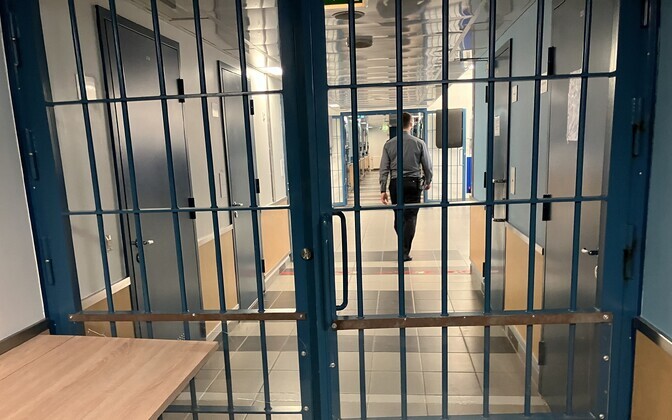Around half of Estonia’s prison spaces are currently vacant, with several countries in addition to Sweden already having expressed interest in renting them. However, Estonia’s own capacity to deal with international prisoners could prove to be a significant obstacle.
According to the Estonian Ministry of Justice, there are vacancies in all three of Estonia’s prisons, but there are no definite plans to rent those places out. The three prisons have a total of 3,000 places, with only around half currently filled.
Rait Kuuse, deputy secretary general for prisons at the Ministry of Justice, said that as the size of Estonia’s prison population remains at a record low, there is room in Tartu, Tallinn and Viru prisons. However, the main issue now is related to staffing and capacity. While other agreements cannot be ruled out in the future, for now the focus is on preparing to implement the agreement that has already been signed with Sweden.
“I still think that the second half of next year would be the first possible time that Swedish prisoners could continue to serve their sentences in Estonia,” Kuuse said.
According to Kuuse, close cooperation has already been established with the Internal Security Service (ISS) and the Police and Border Guard Board (PPA) in order to mitigate any potential security threats. Estonia will be able to carry out background checks on international prisoners and, if necessary, return them at a later date. Prisoners with very complex criminal backgrounds or mental health issues will also not be brought to serve their sentences in Estonia.
According to the agreement, Sweden will be able to send up to 600 prisoners to Estonia at a cost of around €8,500 per prisoner per month.
Former Estonian Minister of the Interior Lauri Läänemets, who leads the opposition Social Democratic Party (SDE), says the government is turning Estonia into a country of cheap outsourcing, which is an economic trap.
“If something happens to the economies of these other countries or in terms the situation between the countries, this service may end up no longer being provided and so there will be a hole in the Estonian economy. In my opinion, it’s the completely wrong approach,” Läänemets said.
In addition to security, Läänemets also expressed concern about healthcare.
“We would need to start finding our own people to provide healthcare there. In Estonia, we can’t provide enough mental health care for our people because there is a shortage of [qualified] individuals. No matter how much another country pays Estonia, the problem can’t be solved because there are not enough qualified people. The government should not make decisions that will gnaw away at the fabric of Estonian society from the other end,” he said.
Rait Kuuse however, dismissed those doubts.
“In my view, we are not competing with conventional health services. Of course, it could be said that one or other service may be cut back somewhere. But on the other hand, we also have a question at the moment about jobs in the region, so essentially the prison service will be faced with a choice after 2027: either have 200 fewer jobs or we will create 200 more jobs in the region,” Kuuse said.
He also disagreed with Läänemets’ criticism that by providing a service to a foreign country, professional prison officers would be kept away from the joining the ranks of the PPA or EDF.
—
Follow ERR News on Facebook, Bluesky and X and never miss an update!
